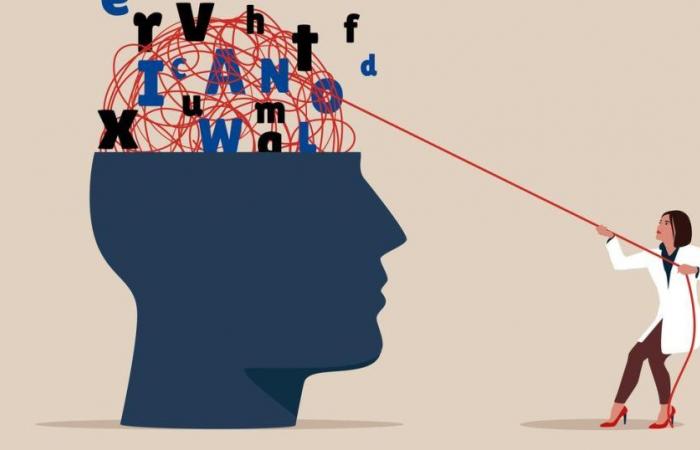Dyslexia, dysorthography and dyscalculia, grouped under the term specific learning disorders, affect 5 to 7% of school-aged children. These are neurodevelopmental disorders present from birth and persist into adulthood. Their impact is often minimized in public opinion.
In the Dingue podcast, Mélody (not her real name), a Master’s student at university, talks about how she lives with dyslexia, dysorthography and dyscalculia. She describes her feelings when it is made clear to her that her spelling is wrong: “People are not tolerant, they don’t help me. It’s very humiliating.”
We associate good spelling with good education and intelligence. However, specific learning disorders are unrelated to intelligence or education. This stigma can have a very profound impact on self-esteem.
“Dys” self-esteem
Luigi Viandante, psychologist and head of the specialized consultation for development and school learning at CHUV, explains: “These are children who will be very impacted in terms of self-esteem, because they are faced with failures and for some, feel stupid, feel worthless.”
Even if Mélody was spotted very early, from her first school year, and benefited from the kindness of her teachers, school was not generally rewarding for her, unlike her relationship with her speech therapist: “She told me that, when you are dyslexic, you learn to develop ways to counter the difficulties that other people will not develop. It valued me and I needed it because at school, we were especially challenged. my bad grades.
Very young, I was always told that long studies would be very difficult. And someone clearly told me: you’re dyslexic, you won’t go to university
Mélody can no longer count the number of doctors and specialists she has met since her childhood, but one of them left her with a lasting memory: “Very young, I was always told that long studies meant would be very difficult. And someone clearly told me: you’re dyslexic, you won’t go to university. So, when I started university, I had a big syndrome. imposter, I didn’t feel legitimate at all.”
In addition to the academic world, Mélody also believes that her disorders have an impact on her daily life: “Just yesterday, I arrived at the wrong place because I got the wrong number in the street number, or I arrived 2 hours before or I get on the wrong bus on a daily basis, it’s time you waste, it’s energy given for things that are useless.
A “dys” functioning of the automations
Performing a task or skill fluently without having to consciously think about it is called automatism. Learning to drive a car clearly illustrates a skill which, at the beginning, takes up all our cognitive resources and which, after a while, becomes automatic.
To take a more academic and fundamental example, if reading is not automatic, then it becomes very tiring. Above all, since a large part of the brain is used for deciphering, there are few resources left to understand the text read. This is why Mélody needs more time than her peers to accomplish the same work. As Mélody puts it succinctly: “It’s tiring and it’s frustrating.”
Mélody’s little superpowers
But Mélody’s speech therapist didn’t lie to her by telling her that she was going to learn to develop ways to get around the difficulties, what we call workaround strategies. Luigi Viandante explains: “This will allow children to transpose their difficulties with written language. We will try to find visual means, for example, to compensate and remember information. This transformation of information from one modality to another leads a certain internal mobility”.
This internal mobility undoubtedly has a link with Mélody’s creativity, even if she finds more trivial explanations: “All that made me very creative, but because I was bored. So, I needed to move or draw on a sheet of paper. I was always told that I was very creative. Often, it was with a ‘but’: she is not very good at school, but she is creative. So, I would say that I am creative, but am I creative because I have dyslexia? I don’t know.”
Adrien Zerbini





